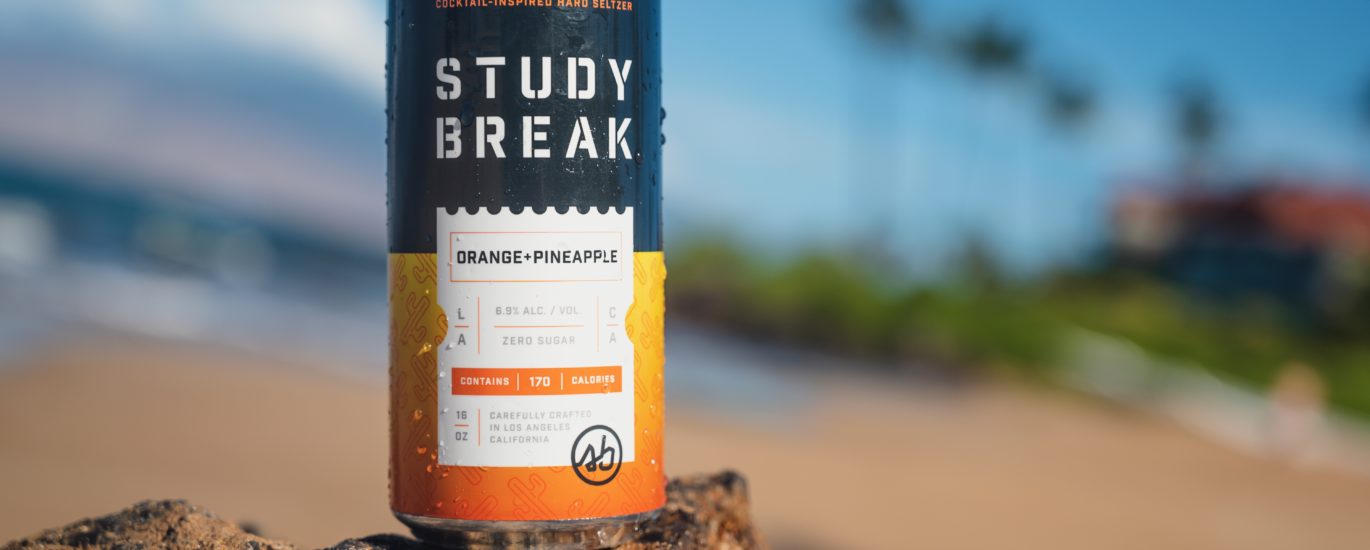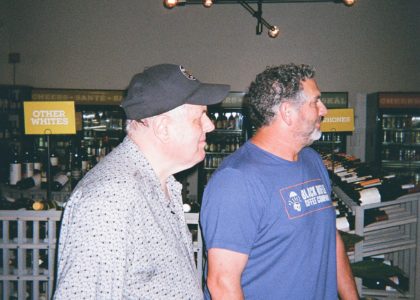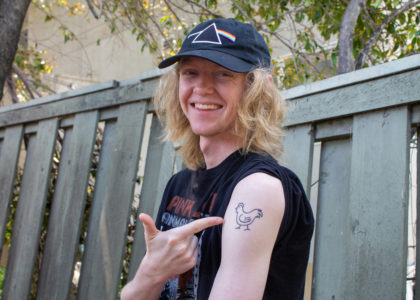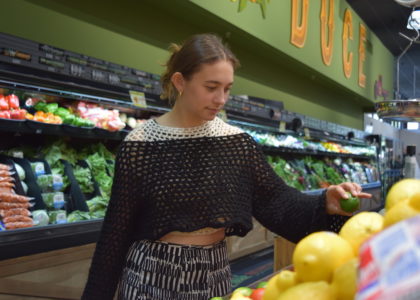By Hailey Belcher
When Sean Kawamura was an undergrad at USC in 2018, he drank his share of beer and mixed drinks. The flavored malt beverages on the market didn’t impress him, and making cocktails at home was too expensive. A better option, he thought, would be ready-to-go cocktails in a can.
That was the origin of the dorm-room curiosity project that would soon become a full-fledged business.
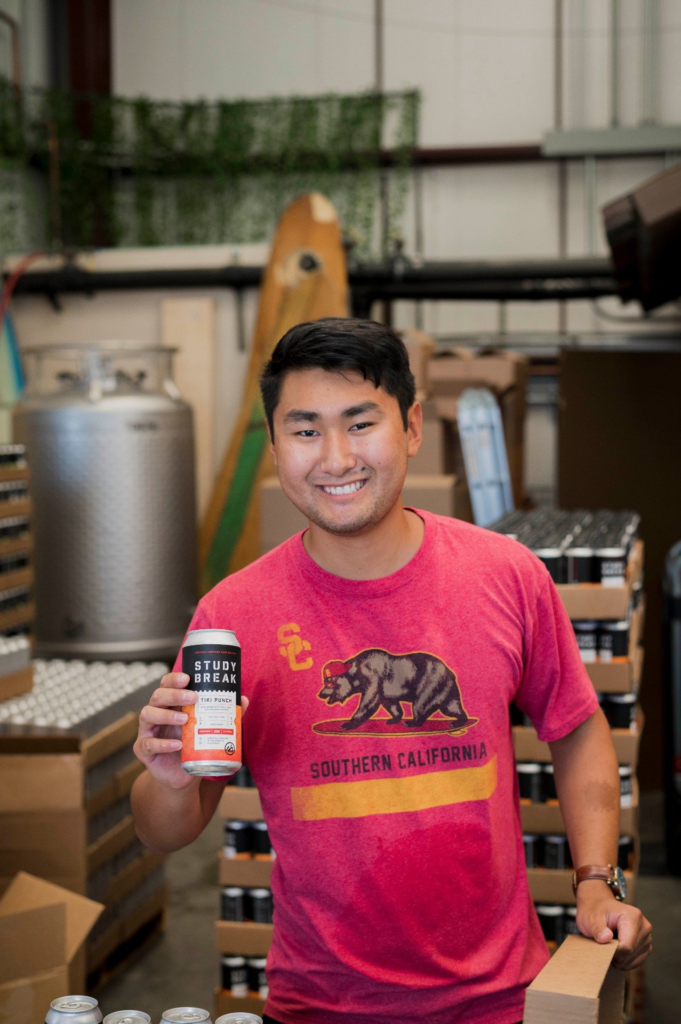
Study Break, L.A.’s first independent hard seltzer company, launched in March 2020. The hard seltzers come in a variety of flavors, such as Mint + Lime and Orange + Pineapple. Study Break can now be found in more than 150 stores throughout California and online.
Kawamura, 24, talked with us about his experience growing the company and what it is like being a young entrepreneur right out of college.
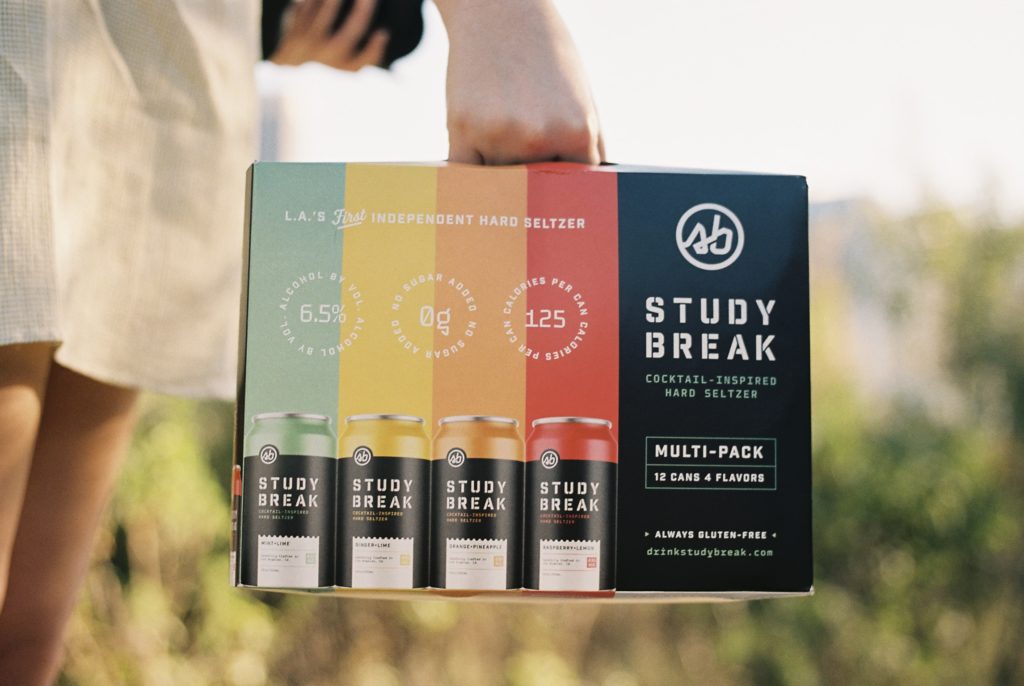
What was the inspiration for Study Break?
My background is originally in finance, and I had an internship with a robotic bartending system. This introduced me to the world of beer, wine and spirits. A lot of what’s out there is because of these really big, multi-billion-dollar companies that can control 75% of what’s on the shelves. It’s really expensive to make cocktails at home and I thought, is there a better way to do this? Because of all of the great reactions from people, we decided to turn the project into a business.
What is the mission of Study Break?
We’re building a drink company and brand that is by our generation, for our generation. It’s about being able to have the perspective of young people and what they actually want rather than having a 30,000-foot view of someone who is 35 years old and onwards.
How has the company evolved since you first started?
A lot. At first we didn’t have an office. We didn’t have any physical space. It started out of my dorm room at USC and we did tastings in the breakout study rooms at school. We would have 15 to 20 people there. Now we have our own facility in downtown L.A. We have our own packaging here, people we employ, a distributor that helps deliver it, and a lot of partnerships and advisors. In a broader sense, it has become more professionalized and an easier process to get the product out to the customer.
What sets Study Break apart from other hard seltzer brands?
The biggest difference is what we’re made from. Most hard seltzers are made from a malt or beer base. That’s the industry standard because of the taxes behind it. We make ours from oranges, so it’s actually considered a wine with more of a spirit-like taste.
Video by Kyle Har
What are some challenges the company has faced?
First and foremost is funding. Most of it, up until building the facility, was self-funded. I had a bunch of internships and jobs beforehand. I used those savings to get it into cans and out to consumers. With any small business, I feel like that’s something that ails them.
Two would be finding a quality co-packer, someone to help make the beverages. We went through two co-packers and couldn’t find one that made sense for us, so we built our own. That squashed that problem, but keeping quality control is a day to day thing as we’re putting out the product.
The third is distribution and how we can get it from our facility out to the shelves. We’ve self distributed a lot of stuff. We have our own van to drop the product off at stores, but having a distributor behind you helps a lot to add legitimacy. This also helps with restocking our stuff after it sells out. That is something that is always an issue: trying to stay on the shelves.
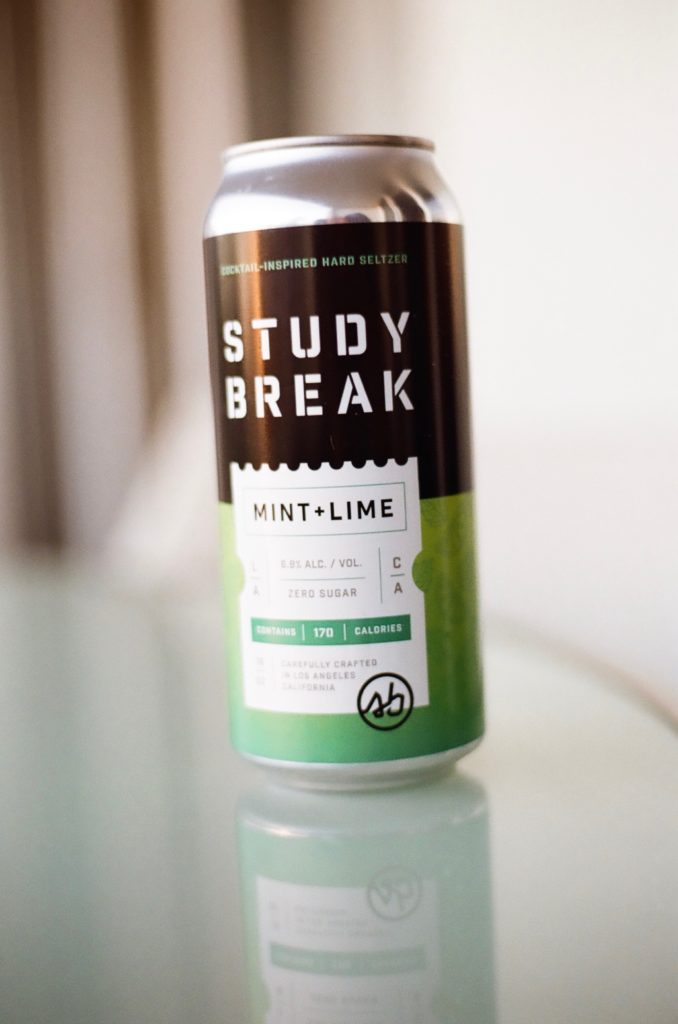
What’s your favorite flavor of Study Break?
Our new flavor we just came out with: Raspberry + Lemon. If you’ve ever had a Lemon Up from In-N-Out, it’s exactly like a Lemon Up.
Do you have any advice for young entrepreneurs?
I would say the biggest thing is being patient. I’m not a patient person at all. It’s a lot of patience in terms of building these partnerships and building these relationships with people. And that’s what really matters. The product, it matters, but I think the relationships are what bring it to another level.
The interview was condensed and edited for clarity.


